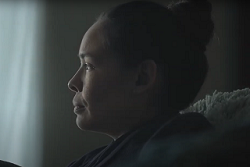Stigma around drug use
On this page
- About stigma
- Stigma matters
- Addiction is not a choice
- The three types of stigma
- Changing how you talk about drug use
- Help end stigma
About stigma
Overdose-related deaths and other harms are affecting our friends, families and communities. Addiction is not a choice. It is a treatable medical condition yet many people affected by addiction face stigma.
Stigma is negative attitudes, beliefs or behaviours about or towards a group of people because of their situation in life. It includes discrimination, prejudice, judgment and stereotypes, which can isolate people who use drugs.
Stigma makes it harder to reach out for help
We can make it easier for people to get support by letting them know they are not alone, and that substance use does not define who they are. Addiction is a treatable medical condition, not a choice.
Stigma matters
People who use drugs, especially those struggling with addiction face discrimination and barriers to getting help.
Stigma can:
- lead a person to avoid getting help because they are afraid of judgement or getting in trouble with work, their loved ones or even the law
- cause a person to hide their drug use or use drugs alone
- affect a person's ability to find housing and jobs, which affects their health and quality of life
- contribute to people who use drugs receiving a lower quality of care from the healthcare system when they access services
Addiction is not a choice
There is a common misconception that addiction is a choice and that people can stop using drugs when they want to. Addiction is complex. People develop addictions because of many reasons, including:
- events in life, especially trauma and chronic stress
- environmental factors
- mental well-being (emotions, thoughts, feelings, and mental illness)
- genetics and biology
Some people try drugs once or use them occasionally. Others use drugs more often, sometimes to try to cope with trauma or pain. No matter the reason, no one chooses to become addicted. Addiction and physical dependence make it hard to stop using drugs even when it's hurting you or people in your life. Recovery is possible but it looks different for everyone.
The three types of stigma
Self stigma
- happens when someone internalizes negative messages about people who use drugs and apply them to themselves
- can lead to low self-esteem and feelings of shame
- can cause someone to not access support because they fear being judged or discriminated against
- can cause someone to hide their drug use or use drugs alone
Social stigma
- negative attitudes or behaviours towards people who use drugs or towards their friends and family members
- negative labels and images in everyday conversation and in the media
- talking about addiction like it's a choice
- judgement and discrimination from other people can lead to self stigma, and cause harm such as not reaching out for help or using drugs alone
Structural stigma
- policies in health and social services that increase stigma, such as not providing services until drug use is better managed
- when healthcare providers or first responders do not take people affected by drug use seriously
- workplace policies that cause harm and unintentionally encourage people to hide their drug use or prevent them from seeking help (example: unnecessary drug tests)
- not connecting people with health or social services because of their drug use and lower quality of care when services are accessed
Changing how you talk about drug use
The language you use has a direct and deep impact on people around you. You can reduce stigma by changing the words you use to talk about drug use. Using kind words can make it easier for someone to speak up, to feel understood or to receive help.
You can:
- use person-first language, for example say 'person who uses drugs' instead of 'drug user'
- use neutral, medically accurate words when describing drug use
- avoid slang such as "addict" and "junkie"
- use language that shows care and concern, rather than judgement
- speak up when you hear someone being treated or talked to in a disrespectful way
- use language that acknowledges and promotes the fact that recovery from addiction is possible, and looks different for everyone
Help end stigma
Take these important steps to help reduce stigma:
- do not define any person by their drug use
- be respectful, compassionate and caring to those who use drugs
- educate your friends and family - pass on facts and challenge stereotypes
- remember that addiction is a treatable medical condition, not a choice, and is deserving of care just like any other medical condition
- be aware of your attitudes and behaviours because they may be influenced by stereotypes, negative stories and images about people who use drugs
Learn how to talk to a friend or family member about drugs.
Related Links
- Stigma: Why Words Matter (fact sheet)
- Explore real stories on how stigma impacts people who use substances
- Canadian Centre on Substance Use and Addiction's Overcoming Stigma Through Language: A Primer
- A Primer to Reduce Substance Use Stigma in the Canadian Health System
- Communicating about Substance Use in Compassionate, Safe and Non-Stigmatizing Ways: A Resource for Canadian Health Professional Organizations and their Membership (2019)
- Chief Public Health Officer's Report on the State of Public Health in Canada 2019: Addressing Stigma - Towards a More Inclusive Health System
- Province of British Columbia: Overdose Awareness Reducing Stigma
- TowardTheHeart.com: Stigma Resource Page
